Clutter and Mood: The Powerful Psychology of Space

INTRODUCTION
The spaces we live and work in have a profound effect on our mental and emotional well-being. Every day, the environment around you sends subtle signals to your brain, shaping your mood, energy, and even your self-esteem. When you walk into a room filled with piles of papers, scattered clothes, or overflowing shelves, you might notice a sense of tension or unease. This reaction isn’t just in your head—science shows that our surroundings can directly influence how we feel and behave.
A cluttered space can make you feel overwhelmed, anxious, or even sad, while a tidy, organized environment often brings a sense of calm, focus, and control. The impact goes beyond simple aesthetics; it touches every part of your daily life. Messy surroundings can disrupt your routines, make it harder to find what you need, and even affect your relationships with others. Over time, living in a disorganized space can chip away at your motivation and self-confidence, making everyday tasks feel more difficult than they should.
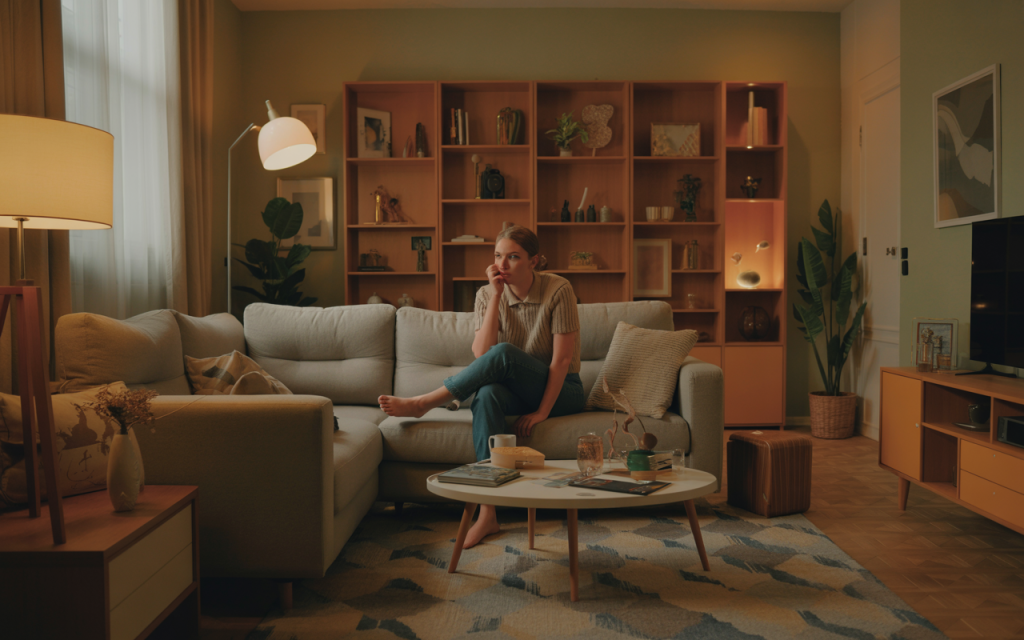
It’s important to recognize that clutter doesn’t just happen overnight. It often builds up slowly, reflecting changes in your life, your habits, and your emotions. Sometimes, clutter is a sign of deeper struggles, like stress, grief, or a busy lifestyle that leaves little time for tidying up. Other times, it’s simply the result of holding onto things for sentimental reasons or out of fear that you might need them someday.
Understanding the connection between your environment and your mood is the first step toward creating a space that truly supports your happiness and well-being. By paying attention to how your surroundings make you feel, you can start to make small changes that have a big impact—not just on your home, but on your mind and your life as a whole.
Why Your Environment Affects How You Feel
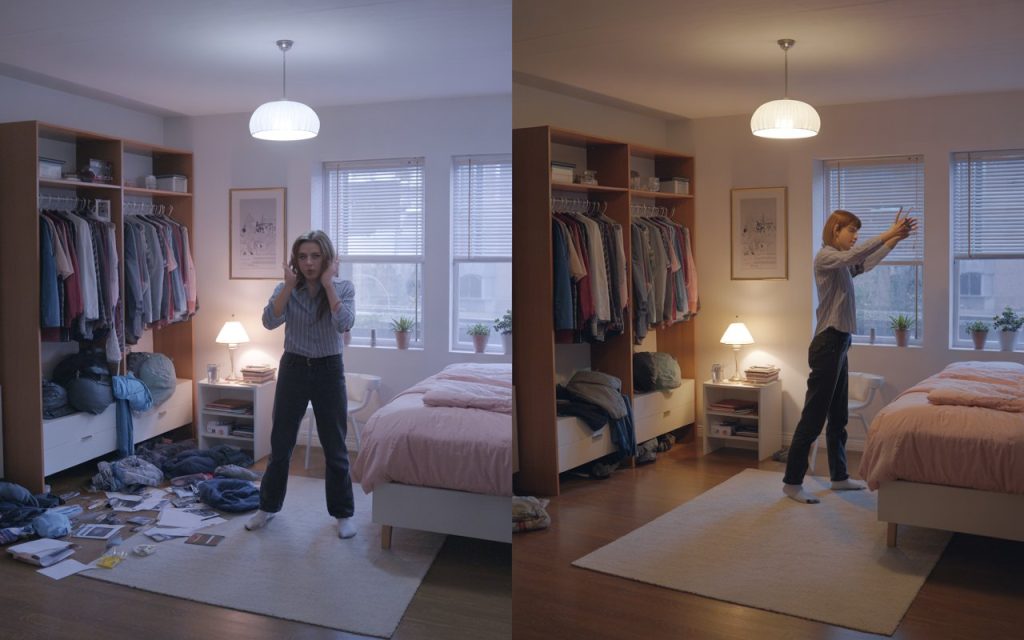
Your surroundings have a big impact on your emotions and daily energy. A messy room can make you feel overwhelmed, anxious, or even sad, while a tidy space often brings calm and focus.
- First Impressions: Walking into a crowded room can instantly raise stress levels. The brain senses disorder, making it hard to relax.
- Sense of Control: An organized area helps you feel more in charge of your life and boosts confidence.
- Daily Routines: Mess can disrupt routines, making it harder to find things and start your day smoothly.
- Self-Image: The state of your home often reflects your feelings about yourself. Clean spaces can lift self-esteem, while clutter may lower it.
The Science Behind Mess and Mental Well-being
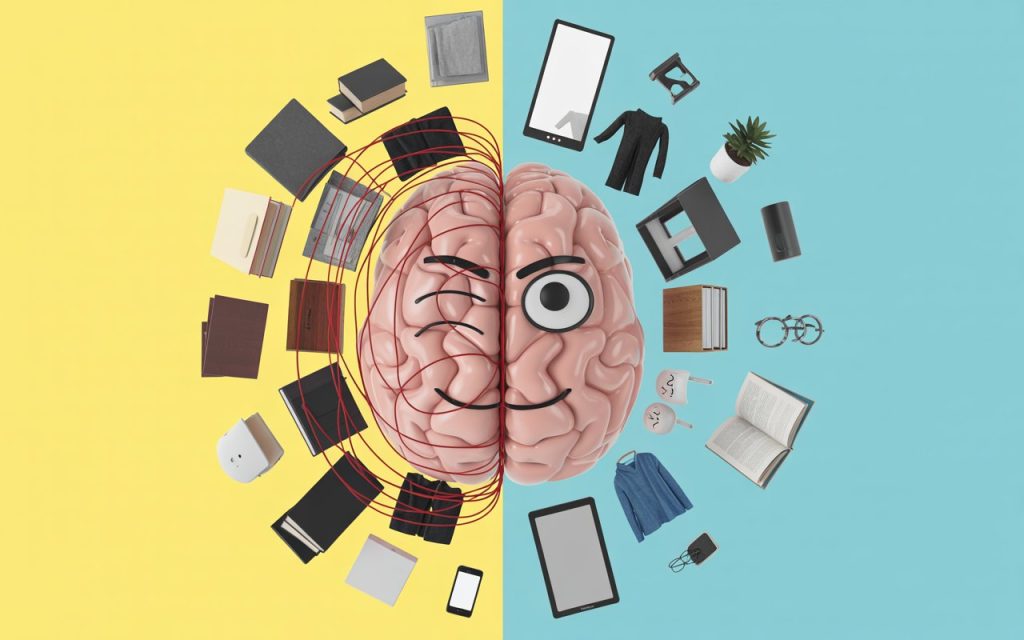
Brain and Stress
- Cortisol Release: Disorganization triggers the stress hormone cortisol, which can lead to anxiety, irritability, and long-term health issues.
- Cognitive Overload: Too much stuff means your brain is always processing extra information, making it harder to focus or remember things.
- Decision Fatigue: Every item is a choice—keep, toss, or move? This constant decision-making can be mentally exhausting.
- Attention Drain: Visual chaos competes for your attention, making it tough to concentrate or enjoy downtime.
Physical Health Effects
- Sleep Issues: People who sleep in untidy rooms often struggle to fall and stay asleep. The mess can keep your mind busy at night.
- Allergies and Illness: Dust and mold collect in piles, triggering allergies or illness.
- Chronic Stress: Living with constant disorder can raise your risk for high blood pressure, heart disease, and diabetes.
- Safety Risks: Crowded spaces increase the chance of trips and falls, especially for kids and seniors.
Emotional and Psychological Reasons for Holding On

Why We Keep Things
- Emotional Attachments: Items may remind you of loved ones or special moments, making them hard to let go.
- Fear of Regret: You might keep things “just in case” you need them later.
- Identity and Self-Worth: Sometimes, possessions reflect who you are or want to be.
- Guilt and Obligation: Gifts or inherited objects can be hard to part with due to guilt.
The Mental Health Cycle
- Depression and Anxiety: Low moods can make it tough to tidy up, and a messy space can make those feelings worse, creating a cycle.
- Guilt and Shame: Living with mess can lead to embarrassment and avoiding visitors.
- Avoidance: The bigger the mess, the more likely you are to avoid dealing with it.
Trauma and Life Changes
- Loss and Grief: After losing someone, people may keep their belongings as a way to hold onto memories.
- Major Life Events: Moving, divorce, or job loss can disrupt routines and make it harder to stay organized.
Productivity, Relationships, and Social Life
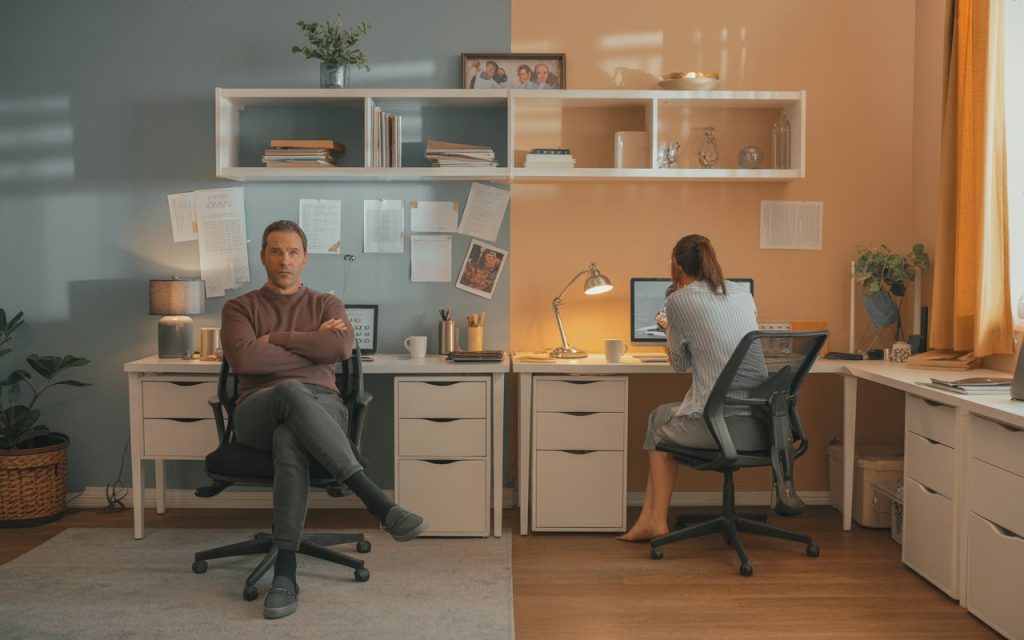
Work and Focus
- Lost Time: Searching for lost items wastes time and lowers productivity.
- Procrastination: Messy surroundings can make you put off important tasks, increasing stress.
- Reduced Creativity: Disorder can block creative thinking and problem-solving.
- Remote Work: A cluttered home office can make it hard to focus and get work done.
Relationships and Family
- Arguments: Shared spaces can cause tension if people have different standards for cleanliness.
- Social Isolation: Embarrassment about your home may stop you from inviting friends or family over.
- Parenting Stress: Parents may feel guilty about their home’s state and worry about the example they set.
- Romantic Relationships: Disagreements about tidiness can cause frustration between partners.
Gender Differences in Reactions to Mess
| Aspect | Women | Men |
|---|---|---|
| Stress Response | Higher stress and depression | Less affected |
| Emotional Sensitivity | More sensitive to surroundings | Less likely to link mood to space |
| Social Impact | More likely to feel shame or embarrassment | Less likely to avoid social events |
| Cleaning Responsibility | Often feel more responsible | May not feel the same pressure |
| Parenting Impact | May feel more guilt | Less likely to link mess to parenting |
- Women: Research shows women often feel more stress and sadness in messy environments, partly due to social expectations.
- Men: Men may not feel the same level of pressure or emotional impact from disorder.
Practical Steps for a Happier Space

Step-by-Step Decluttering
- Start Small: Choose a single drawer or shelf to organize first.
- Sort Items: Make three piles—keep, donate, and throw away.
- Let Go: If you haven’t used something in a year, consider letting it go.
- Organize: Store what you keep in boxes, baskets, or on shelves.
- Set Goals: Make a plan for each room and stick to it. Try setting a timer for 15 minutes a day.
- Daily Habits: Do a little cleaning each day to prevent mess from building up.
- Celebrate Progress: Take before-and-after photos to see your improvement.
Emotional Support
- Talk About It: If letting go is tough, talk to friends or family for support.
- Seek Help: If mess is causing serious stress, consider a therapist or professional organizer.
- Join a Group: Online communities can offer encouragement and practical tips.
Long-Term Organization
- Mindful Shopping: Ask yourself if you really need something before buying.
- Regular Check-Ins: Review your space every few months and clear out what you don’t need.
- Create Systems: Use labels and storage bins to keep things organized.
- Family Involvement: Make tidying up a shared activity so everyone helps.
Special Considerations
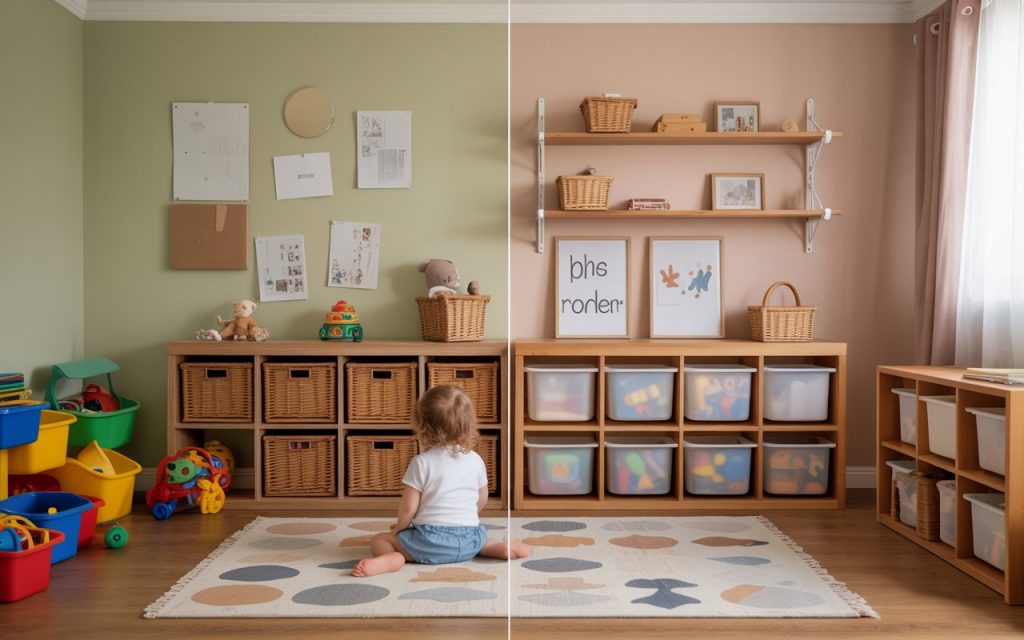
Children
- Learning Habits: Kids learn from their environment, so teaching them to tidy up builds lifelong skills.
- Overstimulation: Too many toys or a messy room can make it hard for kids to focus or relax.
Seniors
- Safety: Mess increases the risk of falls and injuries for older adults.
- Emotional Attachments: Seniors may find it especially hard to let go of sentimental items.
Small Spaces
- Maximize Storage: Use vertical space, under-bed bins, and multi-purpose furniture.
- Frequent Decluttering: In small homes, mess builds up quickly, so regular tidying is key.
Quotes
“Our surroundings aren’t just backdrops—they shape our thoughts, feelings, and daily energy.”
“Clutter is not just the stuff on your floor—it’s anything that stands between you and the life you want to be living.”
— Peter Walsh
“A tidy space can bring calm, focus, and a sense of control, while mess often leads to overwhelm and anxiety.”
“Decluttering is not about perfection. It’s about making room for what matters most.”
“Letting go of things can be hard, but holding on to too much can weigh you down in ways you don’t always see.”
“Small steps toward order can lead to big changes in your mood and your life.”
Highlighted Tips
- Start Small: Focus on one drawer, shelf, or corner at a time to avoid feeling overwhelmed.
- Sort with Purpose: Create clear piles—keep, donate, throw away—to make decisions easier.
- Let Go of Guilt: Release items you’re keeping out of obligation or guilt; your peace of mind is more important.
- Set Daily Habits: Spend just 10–15 minutes each day tidying to prevent mess from building up.
- Use Storage Wisely: Invest in boxes, baskets, and shelves to keep items organized and out of sight.
- Celebrate Progress: Take before-and-after photos to motivate yourself and recognize your achievements.
- Involve Others: Make organizing a family or household activity so everyone shares responsibility.
- Practice Mindful Shopping: Only buy what you truly need to prevent new clutter from forming.
- Check In Regularly: Set reminders to review your space every few months and clear out what you no longer need.
- Seek Support: If clutter feels overwhelming, talk to a friend, join a support group, or consider professional help.
Frequently Asked Questions

Can a messy space really make me feel sad or anxious?
Yes, research shows that disorder can increase stress and lower mood by raising cortisol levels and making it harder to relax.
Why is it so hard to get rid of things?
Emotional attachments, fear of regret, and guilt can all make letting go difficult. Understanding these feelings is the first step to moving forward.
How can I start if I feel overwhelmed?
Begin with a small area, like a drawer or shelf. Setting a timer for 10–15 minutes can help make the task feel manageable.
What if my family doesn’t help?
Try to involve everyone by making organizing fun or setting shared goals. Open communication about how mess affects everyone can also help.
Conclusion
Your environment is more than just a backdrop to your daily life—it is a powerful influence on your mood, stress levels, and overall well-being. As we’ve explored, clutter can quietly drain your energy, cloud your thinking, and even affect your relationships and health. But the good news is that you have the power to change your space, and in doing so, you can change how you feel.




